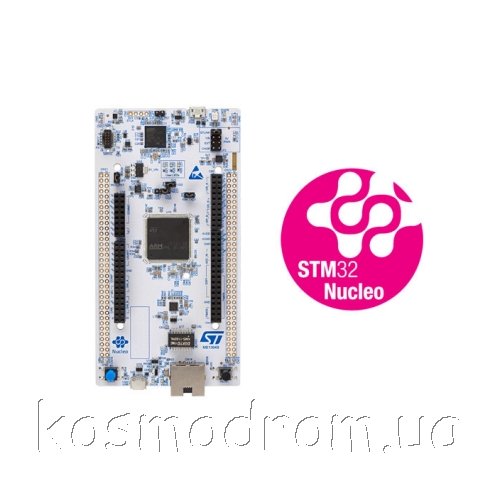

To avoid damaging the STM32H7, it is mandatory Warning: USB Micro-AB connector (CN13) cannot power the Nucleo-ġ44 board.

However, this either fails to mention that using a 3.3V source will prevent the USB OTG from enumerating, or I must be missing something obvious.Įdit: the datasheet also gives this warning in the USB OTG FS chapter (6.6.6), not sure if it's relevant to the issue though. In this case, programming and debugging features are not available, since the STLINK-V3E is not powered. When the 3.3 V is provided by a shield board, it is interesting to use the 3V3 (CN8 pin 7 or CN11 pin 16) directly as power input (Refer to Table 9 and Figure 14).
NUCLEO H743ZI2 MANUAL
I am getting ready to port the project into the actual system and am using the only available power source, a 3.3V from a shield.Īccording to the manual (chapter 6.4.5) this is fine: Up until now I was using the STLink USB as it was the most convenient when testing things out. The manual claims it is recommended to use an external power source when using the USB OTG port. Arm® Mbed Enabled™ compliant (only for some Nucleo part numbers)ĭikkat = Paket içerisinden usb kablo çıkmaz.Scratching my head on this one.Support of a wide choice of Integrated Development Environments (IDEs) including IAR™, Keil®, GCC-based IDEs, Arm® Mbed™.STM32H743ZIT6U Microcontroller Evaluation Board 0.03276MHz CPU 2MB Flash Linux 64-bit/Mac OS X/Win 7/Win 8/Win 10.
NUCLEO H743ZI2 SOFTWARE
Comprehensive free software libraries and examples available with the STM32Cube package STMicroelectronics NUCLEO-H743ZI2 Embedded System Development Boards and Kits.On-board ST-LINK/V2-1 debugger/programmer with USB re-enumeration capability: mass storage, virtual COM port and debug port.Flexible power-supply options: ST-LINK USB VBUS or external sources.ST Zio connector including Arduino™ Uno V3.Ethernet RJ45 (depending on STM32 support).USB OTG or full-speed device (depending on STM32 support) When you run the PIL MEX function, the C-code generated from your MATLAB function runs on the STMicroelectronics Nucleo H743ZI2 board, an ARM Cortex-M7.Ethernet compliant with IEEE-802.3-2002 (depending on STM32 support).External SMPS to generate Vcore logic supply (only available on '-P' suffixed boards).This board support pack contains a CMSIS-Driver for the VIO interface. NUCLEO-H743ZI board schematic CMSIS-Drivers.


The STM32 Nucleo-144 board does not require any separate probe as it integrates the ST-LINK/V2-1 debugger/programmer. The ST Zio connector, which extends the Arduino™ Uno V3 connectivity, and the ST morpho headers provide an easy means of expanding the functionality of the Nucleo open development platform with a wide choice of specialized shields. For the compatible boards, the SMPS significantly reduces power consumption in Run mode. The STM32 Nucleo-144 boards provide an affordable and flexible way for users to try out new concepts and build prototypes by choosing from the various combinations of performance and power consumption features, provided by the STM32 microcontroller. STM32 Nucleo-144 Development Board with STM32H743ZI MCU Supports Arduino, ST Zio and Morpho Connectivity


 0 kommentar(er)
0 kommentar(er)
